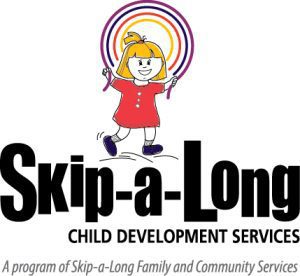SAL Family & Community Services Helping Children To Get Through Covid-19
The impact of the COVID-19 pandemic has hit families hard, particularly those with young children. Children, without the ability to fully grasp what has happened over the past year, can only feel that things have changed. Often, those feelings spark anxiety and fear.
SAL Family & Community Services, home to Skip-a-Long Child Development Services, is an organization that provides support, advocacy, and learning for communities—from childhood to adulthood—in the Quad Cities. They ensure that every child can succeed in school and in life, and every adult has access to basic human needs like food, counseling, health services, and housing. Just last month, they announced

Skip-a-Long has child development centers in Moline, Rock Island, Milan and Davenport.
that Skip-a-Long will be home to a new Early Head Start Child Care Partnership program.
During the pandemic, SAL has worked tirelessly to support children and families, initiating efforts that far exceed mere safety protocols—and developing solutions that keep children feeling safe both physically and emotionally.
“SAL has always been deeply committed to children and families, and it’s taken the hard work and flexibility of our entire organization to ensure that our mission continued throughout the pandemic,” said Marcy Mendenhall, president and CEO of SAL.
Fortunately, that hard work has paid off. SAL has been able to provide uninterrupted care to children and families, albeit with slight adjustments to their methodology. “With the pandemic, we’ve had to create a whole new support system to promote social and emotional skill development,” said Katrina Eirinberg, the mental health therapist at Skip-A-Long, and a licensed clinical professional counselor. “Since parents haven’t been able to come into our classrooms, we’ve had to take extra steps to ensure children feel secure,” she added.
At SAL, those extra steps have taken the form of increased activities, closer collaboration with teachers to ensure children are getting what they need, and constant communication with parents. “We’ve worked closely with our teachers over the past year to develop activities that speak to our changing times. Many of the activities we’ve developed and implemented are focused on eliciting positive emotions. If children feel positive, they’re able to reason better and more clearly understand what’s happening around them,” said Eirinberg.
Thanks to SAL’s efforts, children are doing as best as they can, given the circumstances. Still, it hasn’t been an easy road. “We’ve seen a lot of separation anxiety with the children. When COVID-19 first started one year ago, everything shut down, and children were at home with their families,” said Eirinberg.
“Eventually, they got used to that, and then everything changed again—families went back to work, kids went back to school, and those adjustments were difficult.”
“Change is really hard for kids, and we’ve learned that it’s so imperative for us to help them through that,” she added.
To help children adapt to these changes, Eirinberg makes it a point to check-in regularly via Zoom with teachers, parents, and of course the children. She even schedules monthly ‘story time’ readings online, which have proven to be both well-attended and an important part of connecting with kids and families.
“Throughout this time, we’ve learned so much as a community about taking care of kids, and especially about their sensitivity to change and need for routine. I’m so thankful to have the resources at SAL to continue supporting these kids, and implementing skill-building despite the challenges we’re facing,” she said. “In any environment, if we can create structure and routine for kids, they are able to anticipate what’s coming next and feel a sense of safety. That, of course, reduces anxiety and any behavioral problems that may come along with it.”
Even though the country—and the Quad Cities region—may be seeing a light at the end of the tunnel of this pandemic, Eirinberg, Mendenhall, and the rest of the SAL team is remaining vigilant—monitoring children’s behavior, emotions, social interactions, and consistently adapting to new ways of supporting them. This, they hope, will help others along their own journey in supporting their children.
“At SAL, we’re constantly asking ourselves, ‘What do we need to deliver to families and teachers in order to most effectively care for the children?’” said Eirinberg. “This is truly important work, and my only hope for the future is that mental health therapists become more prominent in early childhood care facilities, because that’s being overlooked. If we can address social, emotional, and behavioral skills with children early on, they are going to be more successful in school and in life.”









